Le Nozze di Figaro is Mozart’s truly delightful comedic masterpiece. There’s something truly infectious about this opera from the beginning of that famous overture to the sweet surrender of the final ensemble piece. One can’t help but become heavily invested. To the point that we have many unanswered questions about what happens to the characters in the ever after, assuming you aren’t familiar with the third Beaumarchais play. What makes Le Nozze di Figaro so perfect? Is it simply the mastery of ensemble writing and/or the libretto? I’m not so sure about that because I could argue that Falstaff is its’ equal in that regard.
In fact, when I see these operas live I typically enjoy Falstaff a little bit more (even if by a negligible amount). But, what Le Nozze di Figaro has that Falstaff doesn’t have is a certain appeal within the music that makes it an overall more enjoyable listening experience, regardless of context. Truthfully, thus far, this was the most thoroughly enjoyable my research for this project has been(although, I do enjoy them all). Before we get into the recordings, I am going to point out that a few singers will be on more than one of the selected recordings. This is not me saying that these singers are the definitive best at their respective roles, but simply that they were part of an outstanding ensemble, and their contributions were also outstanding.
I should also preface that I will only be speaking about the singers on an individual basis, because if they’re on this list it means the ensemble was outstanding. For this article I have selected one studio recording, one live recording, and one film recording. I hope you enjoy.
Studio
1982 Decca Studio Recording: Samuel Ramey, Lucia Popp, Sir Thomas Allen, Dame Kiri te Kanawa, Frederica von Stade, Kurt Moll w/ Sir Georg Solti Conducting
Samuel Ramey in the titular role sings a well produced, burly Figaro, capable of playfulness throughout. But, where Ramey truly excels is portraying Figaro in his moments of doubt and insecurity that make cameos throughout the opera. Lucia Popp sings a sweet Susannah, and shines brightest in her scheming. Sir Thomas Allen is able to seamlessly vacillate between nobility, elegance, anger, and lust. Dame Kiri te Kanawa turns in a stunning performance of the perpetually tormented Contessa, bringing sweet sorrow to every line of her arias. Frederica von Stade handles the playfulness of Cherubino with both artistic and vocal ease. Kurt Moll is luxury casting as Dr. Bartolo, singing a La Vendetta that feels more akin to the commendatore scene in Don Giovanni. Sir Georg Solti turns conducts the London Philharmonic masterfully, hooking you in with the overture and never letting go throughout the entirety of the opera.
Samuel Ramey singing Se Vuol Ballare, Signor Contino
Live
1985 Metropolitan Opera: Kathleen Battle, Ruggero Raimondi, Frederica von Stade, Carol Vaness, Sir Thomas Allen w/ James Levine Conducting
Ruggero Raimondi nails the bluster of Figaro throughout, but is able to scale back admirably in the most tender of moments. Kathleen Battle sings with a beauty that is honestly quite ethereal. Frederica von Stade and Sir Thomas Allen sound almost identical live to how they sounded in studio, which is a rather incredible feat. Finally, Carol Vaness sings a spectacular Contessa throughout. She has a rather hefty voice for a Contessa, but because of her superb command of her technique she is able to scale it back from full throated fortissimo to moments of spectacular vulnerability. This is one of the operas commonly associated with James Levine, and when listening to the music throughout it’s no wonder why.
Carol Vaness singing Dove Sono
Film
1976 Unitel Productions: Hermann Prey, Mirella Freni, Dietrich Fischer-Dieskau, Dame Kiri te Kanawa, Maria Ewing w/ Jean-Pierre Ponnelle Directing and Karl Bohm Conducting
Herman Prey absolutely nails the spry nature of Figaro and is gripping to watch throughout, throw in his great singing and you have an all-time great Figaro. Mirella Freni might have a bigger voice than one would commonly associate with Susannah. However, her shimmering tone and command of dynamics makes her a thoroughly convincing Susannah. Fischer-Dieskau carries himself with nobility throughout, and does some of the best operatic singing of his career. Dame Kiri te Kanawa sings every bit as well as she did in the 1982 studio recording, but it’s only enhanced by watching her elegant presence throughout. Maria Ewing sings a Cherubino for the ages, but where she really shines is in her acting. Her physicality is Cherubino, and it makes her performance a delight. Jean-Pierre Ponnelle clearly understood the score and drama well because this is an incredibly entertaining movie to watch, with stunning cinematography to boot. Karl Bohm puts the bow on it with a great command of the score.
Contessa Perdono from the finale
Final Thoughts
I really enjoyed putting together this article. There were a lot of great individual performances in this opera that I wanted to include in this list, but I narrowed it down to what I felt were the best ensemble recordings. These recordings are available on iTunes, Amazon, and/or YouTube. I hope you enjoy.
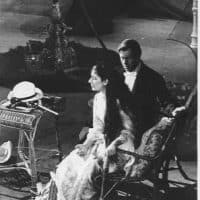
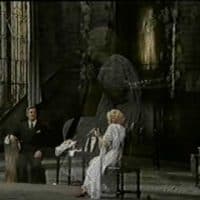

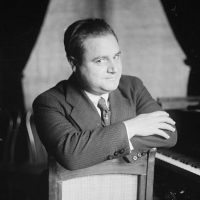
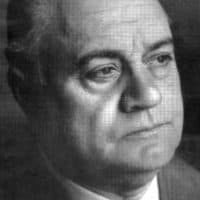
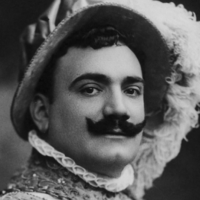
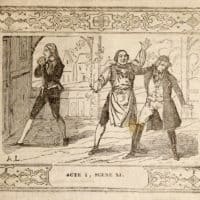
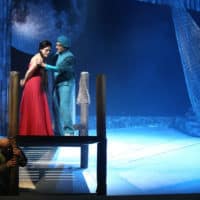
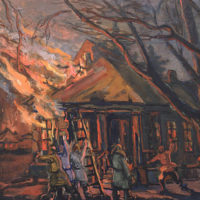

Comments are closed.